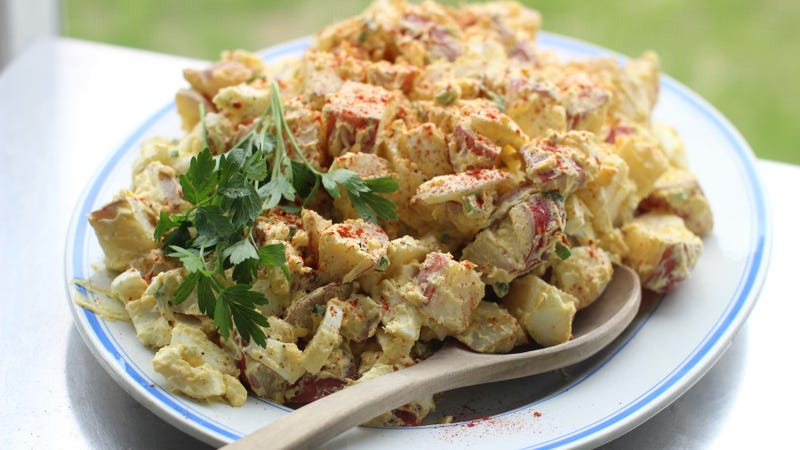 Photo: AP
Photo: AP
On a picnic table before you sits an enormous bowl of potato salad. You have a bite, which tastes okay, and almost immediately start feeling ill. You, however, love potato salad. So you have another bite, which makes you feel even worse, and then another, and then another. Somewhere, deep down, you know this is madness. “Why am I doing this?” you ask, shoveling another vile dollop into your quivering maw. “I feel like I’m gonna hurl.”
This, more or less, is the current state of the internet.
If it were measured in well-being instead of dollars, the online attention economy would be plainly seen as a failure, producing a buffet of content that ultimately leaves us sick and hungry. Social media networks once celebrated for their potential to create positive change have resulted in an explosion of harassment and misinformation. Attempts at “better” moderation have repeatedly silenced the vulnerable while tacitly endorsing the most adept manipulators. And since good clicks and bad clicks spend the same in this viral market, the greatest individual beneficiaries of the attention economy have been divisive, odious figures like Donald Trump and Logan Paul.
This, in short, blows chunks.
As we come to terms with this new reality, our grand hopes become cries of desperation. “Maybe social networks will make the world a better place” becomes “maybe a better alternative will arise” becomes “maybe this site will be less shit” becomes “let’s nationalize it, or something, I don’t know.” Occasionally, solutions to our predicament are offered, like my own (hypocritical) suggestion to delete the apps. What almost all of these proposals share is a failure to acknowledge the fundamental nature of the problem: We, the people, love the trash and putting it in our mouths.
Like the friend who insists “they hate drama” while actively promoting the same, we rail against the state of the internet while (through the collective spending of our attention minutes) encouraging it to become the worst version of itself. The fundamental goal of news outlets, social networks, and internet personalities is to get you to look at them. If they’re bad, it’s almost certainly because being bad works.
The relationship between the destinations that want to maximize time-on-site and the users who will do anything to avoid being bored could be described as a feedback loop, but on most days it better resembles a turd ouroboros. There’s lots of useful news online now, sure, but even more pointless nastiness, like the improbable six-day feeding frenzy known as “#PlaneBae.”
PlaneBae, the fundamentally creepy viral moment that seemed to only get dumber the more we talked about it, is as close to perfect illustration of this potato salad as I can think of. Bad from the outset, our solution was to make more servings from the same rotten eggs—which would be crazy, if people didn’t eat every bowl! News sites like this one shoulder much of the blame, but so do the hundreds of thousands of people who retweeted the original thread, the thousands more who shared both the initial write-ups and follow-up stories, and the dozens of others who used this moment as moral justification to hound random strangers online.
In an ideal world, this would be a moment of learning and reflection. “Yes,” we’d say, heads solemnly bowed, “the content was fun, but ultimately bad, let’s never do that again.” But having completed the familiar cycle of undue fame, harassment, critical reassessment, and further harassment, the matter seems closed. And by focussing on the individual shitty aspects of the incident, instead of its systemic causes, we have all but ensured we’ll be right back here in a couple weeks, if not sooner.
This capture of our collective attention by social media bullshit is sometimes framed as a “hack” of human consciousness, but we’ve shown too much agency for that to be completely true. We’ve increasingly learned to ignore certain types of interesting but ultimately pointless content online, such as overt trolling, displays of ignorance by nobodies, and The Super Grody Stuff. When it comes to paying attention to jackasses, invading others’ privacy, or being rude to powerless strangers—basically anything you’d be embarrassed to do in public—individual internet users could exercise a similar vigilance, cutting off the demand and disincentivizing further supply. If something frivolous looks like it sucks, don’t click it, don’t share it, and for sure don’t “make it better” by responding to it in a way that will communicate your own righteousness while furthering the sucky thing’s spread.
When charting the internet’s descent from a fun place to an ugly one, it’s easy to point to specific features, like algorithmic feeds, as the cause of the decline, but most of the worst changes are the result of a more basic motive: content vendors want us to look more, and promoting the most captivating content works.
“Captivating,” however, is not the same thing as “good” or “healthy.” The potato salad is bad. Don’t eat it.